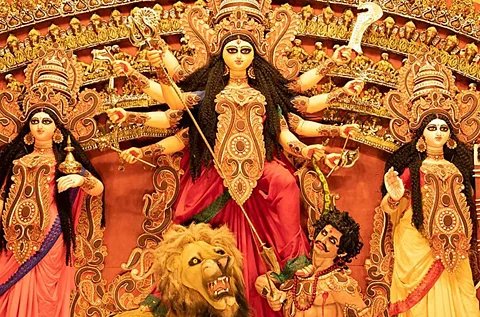
- Home
- Live Blog
- Breaking News
- Top Headlines
- Cities
- NE News
- Sentinel Media
- Sports
- Education
- Jobs

With the Durga Puja festival round the corner, the demand for various kinds of sweets is expected to go up in the next few days. This is also the time when sweetmeat manufacturers, restaurants, and hotels will step up production in order to meet this demand. Sweets of various kinds, ranging from jelepi to laddoos, rasgullas, ras-malai, halwa, gulab jamun, soan-papdi, and barfis, as well as bhujia and bundiya, will be put up for sale not only in regular sweet shops and restaurants, but also in temporary open sheds, especially around various puja pandals. It is at this time that the question of the quality and safety of sweets comes to one’s mind. Indian people love sweets. But very often, surprise checks and raids have led to the discovery of tonnes of adulterated sweets prepared with adulterated ingredients, especially during festivals. Reports have shown that many sweet manufacturers use the chemical formalin in order to preserve sweets for long periods of time. Formalin is normally used for the preservation of corpses. Studies have shown that consumption of formalin-mixed sweets can lead to damage to the kidneys and liver of humans, apart from causing asthma attacks and cancer. Such sweets also cause serious complications in pregnant women and the foetus. Reports quoting the Pune-based Food and Drug Administration (FDA), have confirmed that the silver foil used for coating sweets is increasingly being adulterated with aluminium, a metal, which is a hazardous metal when consumed. Aluminium accumulates in body tissues and bones, and can also enter the brain. In pregnant women, it can cause damage to the placenta and foetus. It is also suspected that aluminium poisoning is a major cause of dementia and Alzheimer’s disease in India. Quite a sizable percentage of milk sold in the unorganised sector in India is contaminated and adulterated with synthetic milk. This is a toxic concoction made with urea and some other detergents. While it is not possible for common people to detect any difference between real milk and synthetic milk, sweets made of synthetic and adulterated milk can cause liver and kidney failures and much more damage. Moreover, production of sweets and other food items—like momo, chow-mein, biryani, pulao, etc.—in unhygienic conditions, keeping them in the open and in improper storage, and unhygienic handling leads to contamination, thus posing health risks to consumers and diminishing the very sanctity of the festivals. Given this scenario, this is the right time for the health and administration authorities to issue strict guidelines for the manufacture and sale of various food items, including milk products, and to conduct surprise inspections of hotels, restaurants, and temporary wayside vendors, and take strict action in the interest of the common people. This is also the appropriate time for the concerned authorities to organise awareness programmes targeting sweets manufacturers, retailers, and temporary vendors across the state in order to enhance food safety and quality during the upcoming festival season.